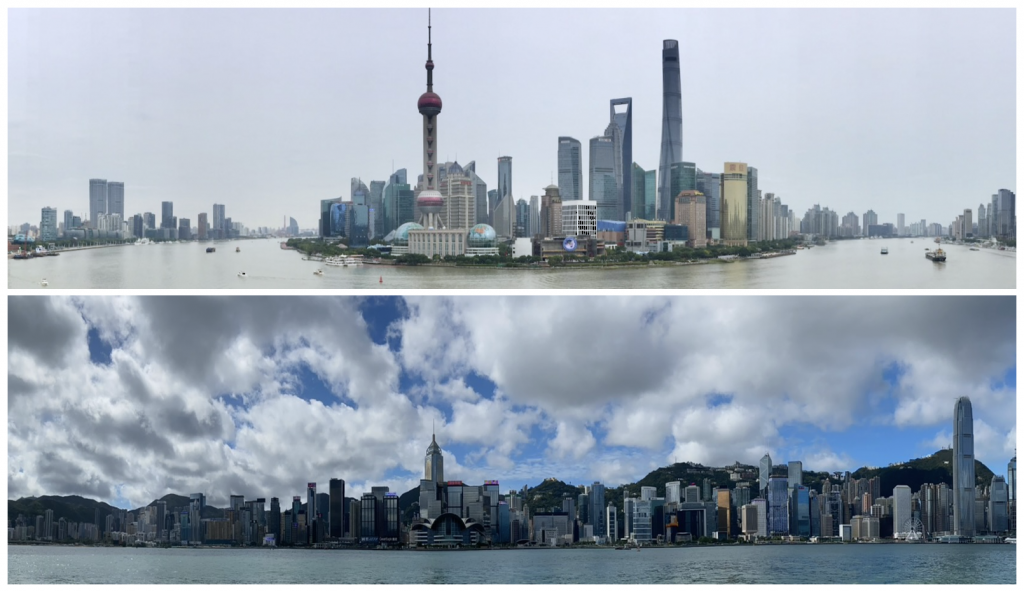Interview with Qiaona Jiang
By Ruyu Yan

photo by Qiao Na
Qiaona Jiang is a second-year PhD candidate. Her research focuses on the gatekeeping requirements of mainland Chinese MBA admission interviews. Drawing on her previous experience as an MBA admission interview trainer in Shanghai, she has developed a keen insight into the intricate “China style” gatekeeping mechanism, which is influenced by the country’s socio-economic culture. Recognizing the significance of the topic to gatekeeping studies, Qiaona is currently exploring this in her PhD project.
How long have you been at HKU and what is the title of your project?
I had never been to Hong Kong prior to starting my PhD studies in 2022, which means that the past few years have been a real adventure!
The title of my project is “Gatekeeping Socialist MBA degree: An investigation of role-played ‘China style’ MBA admission interviews”. In this context, the term “gatekeeping” serves as a metaphor, referring to the process of evaluating and selecting candidates within institutional settings.
What are the major themes in your research?
I am studying the interactional gatekeeping requirements of mainland Chinese MBA admission interviews, by focusing on the interaction between the interviewer and the candidate in a series of simulated MBA admission interviews in Shanghai.
How and why did you become interested in your area of study?
Before starting my PhD studies at HKU, I worked as an MBA admissions interview trainer in Shanghai. My job was to investigate how mainland business schools gatekeep MBA candidates. The more I investigated these issues, the more I realized that the “China style” (中国式) MBA gatekeeping mechanism is a complicated one, profoundly influenced by the country’s hybrid socio-economic culture. Recognizing the significance of this topic, I decided to develop it into a PhD project.
How does the HK and HKU context inform your research?
Hong Kong is an ideal location for my research, as it has allowed me to acquire a more objective perspective on the socio-economic culture of mainland China. Traveling between Shanghai and Hong Kong has also been a thought provoking process that has helped me to reflect on the multifaceted nature of the country.
HKU is full of brilliant minds, so I regret being in ‘goblin mode’ most of the time. I now come to the office more often. Daniel, my supervisor, is also working on comparable gatekeeping contexts, which means there are lots of useful research synergies.
How do you see your current work fitting into your future career?
I think my current work, which involves research and teaching, will benefit my future career as a college faculty member. My research is empirical and interdisciplinary, which provides with me diverse opportunities and career options. Additionally, serving as a teaching assistant allows me to stay connected with undergraduate students and to enhance my teaching skills.
Are there any popular publications you would recommend to our readers?
Erickson and Shultz’s The Counselor as Gatekeeper: Social Interaction in Interviews (1982) is must-read for researchers in the field of gatekeeping.
For those interested in Interactional Sociolinguistics, I’d recommend the works of John J. Gumperz, especially his book Discourse strategies (1982), which is a valuable resource to which I frequently refer.
Wen Tiejun’s books, such as Ten Crises: The Political Economy of China’s Development (1949-2020), have provided me with valuable insights into Chinese economic reform and the underlying rationale for its hybrid nature. Regarding Chinese culture, I recommend Fei Xiaotong’s From the Soil: The Foundations of Chinese Society and Arthur Waley’s translations of Chinese classics, such as The Analects of Confucius (1938).
Outside of writing, what do you enjoy doing?
I take part in lots of activities organized by Graduate House (a CEDARS-administered residence where I live), including hiking, karaoke, and festival parties. Besides all that, I love video games, particularly RPGs (“role-played games”); not “research postgraduate students”!!
